Speakers
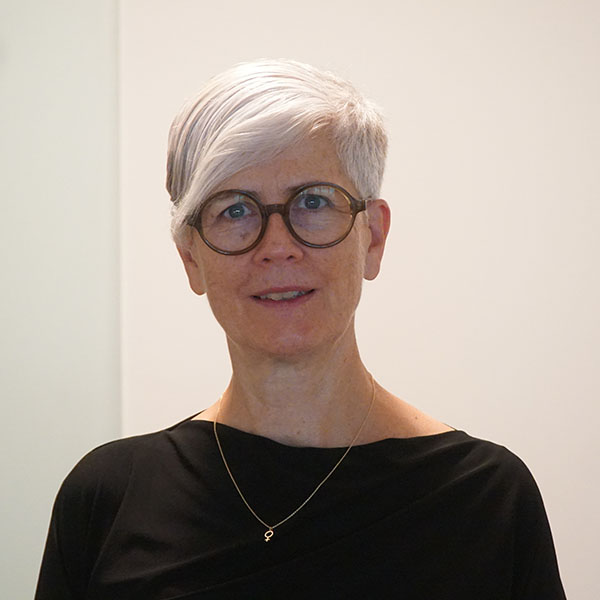
|
Anita Kienesberger
CCI Europe Anita Kienesberger is the Chair of CCI Europe Committee. As a pediatric oncology nurse and the Head Nurse of the Oncology ICU at the St. Anna Children ́s Hospital in Vienna, Austria, she became a fierce advocate for the children’s with cancer rights and wellbeing. Anita has served as a Board Member of Childhood Cancer International (2003 – 2014) and as the CEO of the Austrian Childhood Cancer Organisation (2001 – 2021), while she is currently the Chair of the austrian oncological patient organization Die Allianz and the European Cancer Patient Organisations Network (WECAN). Her goal in any position she is involved in is to use her experience to advocate for initiatives and solutions that will make the life of children with cancer better, during and after treatment. |
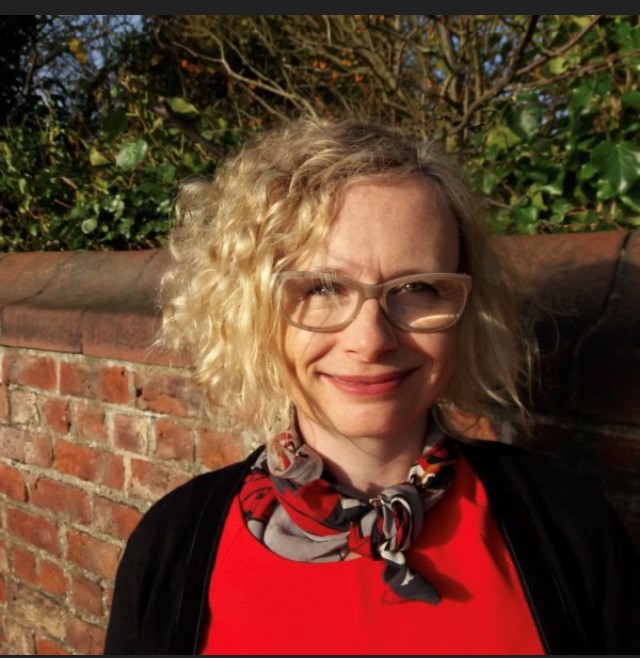
|
Anne Kerr
Université de Glasgow Anne is Professor of Science & Technology Studies and Head of the School of Social and Political Sciences at the University of Glasgow. She has a background in Science and Technology Studies and Medical Sociology, researching professional, patient and public encounters with innovative health technologies, including assisted conception, reproductive genetics, regenerative medicine, and genomic medicine for cancer. She has written widely on her research with colleagues from across the social and bio-sciences, focusing on how patients, researchers and clinicians craft the opportunities and risks of biomedicine. Anne is a member of the Nuffield Council in Bioethics and is Chair of their Advisory Board on the Assisted Dying Project which is overseeing a Citizen’s Jury to explore the perspectives that people living in England have on assisted dying. |
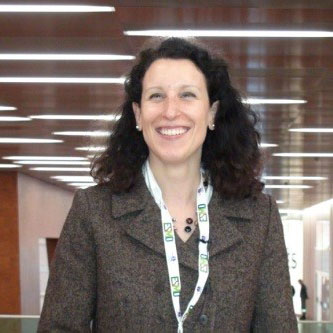
|
Anne Mc Leer
Bio-pathology department of the Léon Bérard cancer center Anne Mc Leer obtained a PhD in Biological and Physiological Sciences in 2004 from the University of Lyon. She is a medical biologist in Cancer Molecular Biology and Genetics. She was an Associate Professor at the Medicine Faculty in Grenoble (France) and head of the Molecular Pathology Unit in the Pathology Department at the Grenoble University Hospital from 2011 to 2023. Since 2024, she has joined the Tumour Biology Team at the Léon Bérard Cancer Centre in Lyon (https://www.centreleonberard.fr/ ). She is dedicated to the implementation of innovative molecular tests for cancer patients, and takes an active part in the AURAGEN medical biology laboratory, which is part of the national 2025 Genomic Medicine France Plan (https://pfmg2025.aviesan.fr/ ). Anne conducts her research activities on the molecular characterization of lung cancer. |
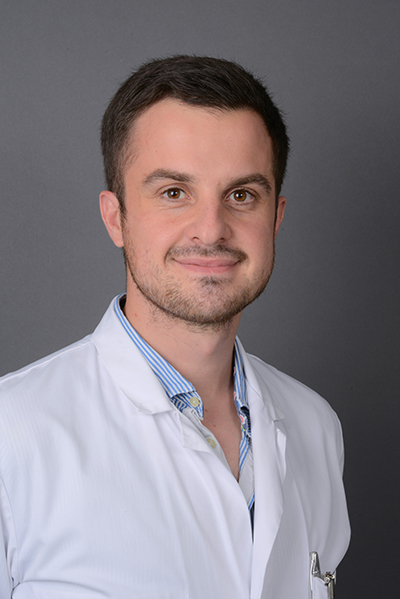
|
Arnaud Bayle MD PhD
Oncostat U1018, Inserm, Université Paris-Saclay Direction de la Recherche Clinique Gustave Roussy Dr Arnaud Bayle is a medical oncologist working in the Drug Development Department (DITEP) at Gustave Roussy Cancer Center (Villejuif, France). He is also an assistant professor at Paris Saclay University. Dr Bayle trained as a medical oncologist (MD) at Paris Descartes University and obtained the Silver medal from Paris Medical School in 2020. In parallel, Dr Bayle graduated in 2015 from ESSEC Business School with a Master of Science (MSc) in Management and finished first in his year of the ESSEC Chair of Health Systems (class of 2013). Dr Bayle has a specific interest in Public Health and is currently pursuing a PhD in Health Economics at Paris Saclay University in the field of biomarkers and precision medicine. In addition to his clinical experience at Assistance Publique des Hôpitaux de Paris (AP-HP) and Gustave Roussy, Dr Bayle has been working for the World Health Organization (WHO) at the office to the European Union in Brussels. He also worked for the French Ministry of Health at the Directorate of Social Security (DSS) in charge of healthcare system financing. His last experience led him to work at the Inspection Générale des Affaires Sociales (IGAS) which is the French Government audit, evaluation and inspection office for health, social security, social cohesion, employment and labour policies and organisations. Dr Bayle is a member of the European Society for Medical Oncology (ESMO) and is a member of the Global Policy Committee. |
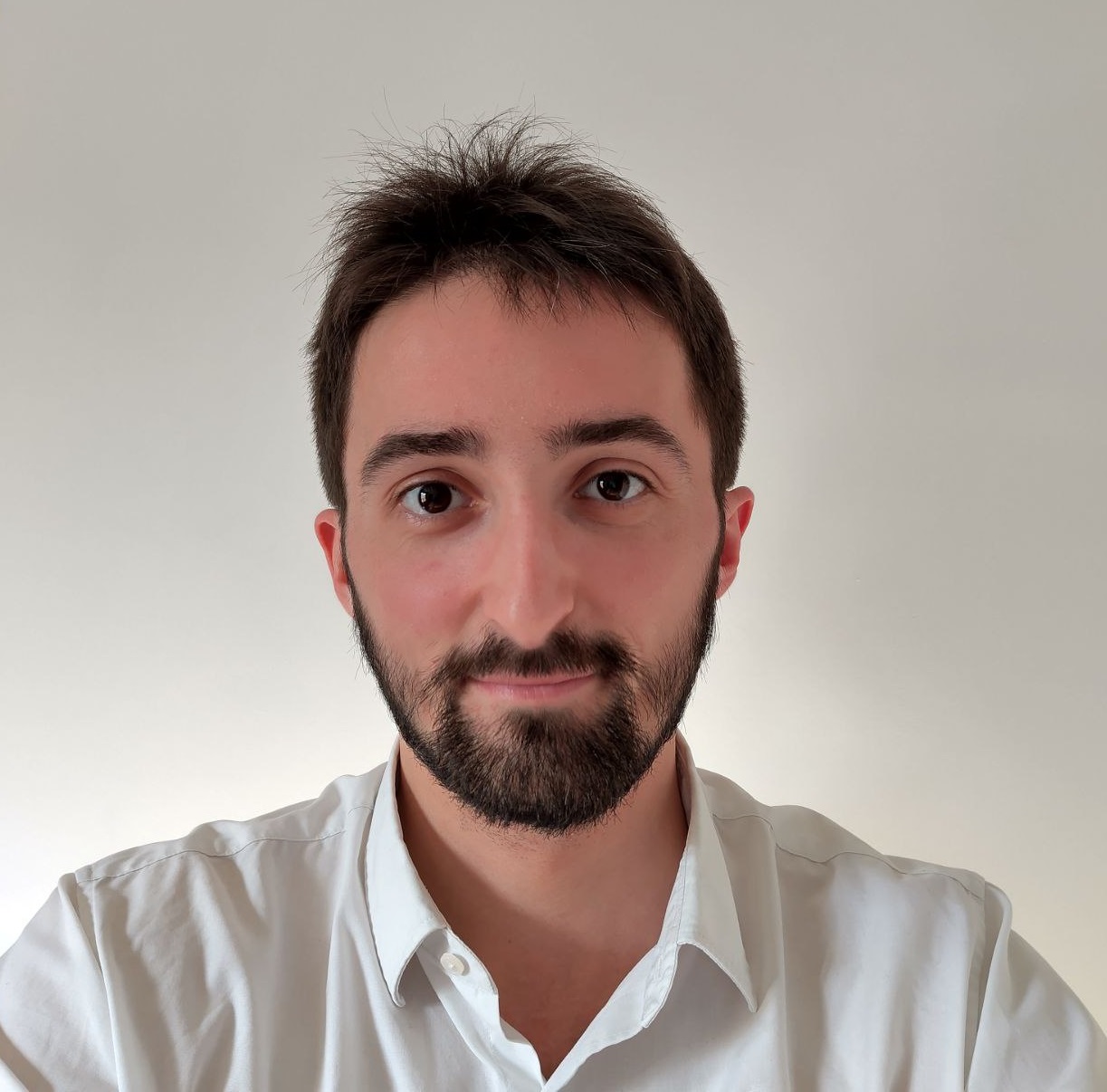
|
Mathis Bernard
Lyon II University Triangle (UMR 5206) Humanities and Social Sciences department of the Léon Bérard cancer center Mathis Bernard is PhD student in sociology at Université Lumière Lyon 2 under the supervision of Sylvain Besle and François Buton. His research focuses on the links between changes in biomedical evidence and therapeutic innovations in oncology. He's mainly investigating the questioning of Randomized Controlled Trials, the development of biomedical research based on molecular mechanisms, and the emergence of Real World Data. |
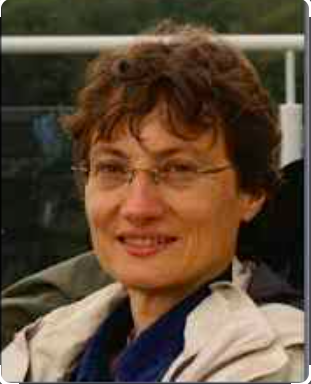
|
Carine Vassy
IRIS, Université Sorbonne Paris Nord Carine Vassy is a sociologist, professor at Sorbonne Paris Nord University and vice-director of the Institut de Recherche Interdisciplinaire sur les enjeux Sociaux (IRIS - http://iris.ehess.fr/). Her work focuses on hospital organisation, the healthcare professions, public health policy and biomedical innovation. She is currently working on the social issues surrounding genetic screening for foetal anomalies. |
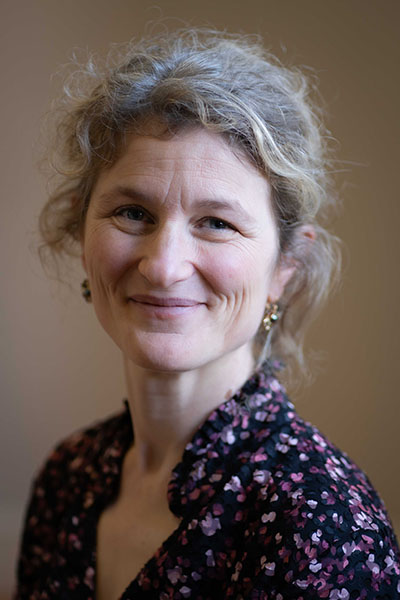
|
Catherine Bourgain
INSERM Cermes3 Catherine Bourgain is a research director at the French National Institute for Health and Medical Research (INSERM) and the director of the “Centre de Recherche Médecine, Sciences, Santé, Santé Mentale, Société” (Cermes3 ; CNRS, EHESS, Inserm, Univ. Paris). Trained in statistical genetics (PhD from Université Paris Saclay; post-doc at University of Chicago), she worked for ten years as an Inserm research fellow in genetic epidemiology before turning her research interests toward science and technology studies and the sociology of health. She is now leading an interdisciplinary research group at Cermes3 that studies genomic technology innovations, analysed both in experimental and routine contexts and through a variety of healthcare contexts, including oncology and cardiovascular diseases. She has been a member of the Inserm Ethics Committee since 2013. |

|
Claire Beaudevin
Cermes3 (Research Centre on Medicine,Sciences, Health & Society, CNRS-Inserm-EHESS-Paris Cité University, Paris, France) Claire Beaudevin is a social anthropologist and CNRS permanent researcher in Cermes3. Her work focuses on medical genetics and genomics, in their daily practice as well as in their relationship with health systems (Sultanate of Oman, France) and global health (WHO, Sultanate of Oman). Her research approach combines anthropology of health, anthropology of science and collaboration with historians and sociologists. https://www.cermes3.cnrs.fr/en/members/members/beaudevin.html https://cv.hal.science/claire-beaudevin |
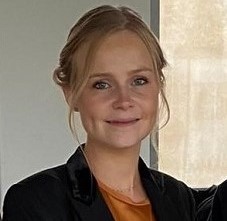
|
Emilie Charton
Clinical Research and Innovations Departement and Humanities and Social Sciences department of the Léon Bérard cancer center Emilie Charton is a statistician at the Cancer Care Center Léon Bérard, specializing in health-related quality of life in oncology. Her work focuses on longitudinal analysis of health-related quality of life data in oncology and social inequalities in health in the context of clinical research. She defended a PhD in Biostatistics in 2020 at the University of Bourgogne Franche-Comté. Her PhD research focused on the methodological reflection to standardize the analysis and interpretation of quality of life data, in particular the time to deterioration approach |
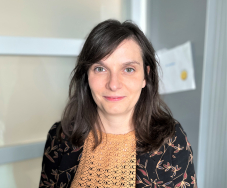
|
Estelle Vallier
Humanities and Social Sciences department of the Léon Bérard cancer center Estelle Vallier is a sociologist at the Social Sciences and Humanities department of the Léon Bérard Center, associate researcher at Cermes3 (Cnrs UMR8211- Inserm U988 - Univ. Paris Cité - EHESS). She is interested in science-industry relations, particularly in the context of innovation policies. Her PhD thesis focused on the dynamics of cooperation between academic laboratories and biotechnology start-ups in the Genopole cluster. She is currently working on the industrialization of clinical research in oncology and, more broadly, on the organization of hospital work in a context of innovation and care. She is also interested in the consequences of these transformations on patient care. https://cv.hal.science/estelle-vallier |

|
Héléna Revil
Pacte Laboratory (UMR CNRS 5194), Grenoble-Alpes University (UGA). Héléna Revil holds a doctorate in political science and since 2020 has been head of the Observatoire des non-recours aux droits et aux services (Odenore), a research unit of the Pacte social science laboratory and Grenoble-Alpes University (UGA). Her research analyses the issues and effects of public action aimed at improving access to social rights and healthcare, both for the public and for the professionals who design and/or implement it. In a related vein, Héléna Revil explores health and care trajectories, in particular those of people in precarious and/or sick situations, through the prism of ‘non-recourse’ (the fact that people do not access or do not want to benefit from certain social benefits and/or health services to which they could be entitled). This enables her to highlight inequalities throughout people's trajectories towards and within healthcare, and to pinpoint the underlying mechanisms, particularly in relation to their life contexts and medical practices and organizations. Héléna is also interested in the implications of these inequalities for people's health. From a methodological point of view, her research is carried out in close collaboration with health and social workers, including people affected by poverty and/or illness. |
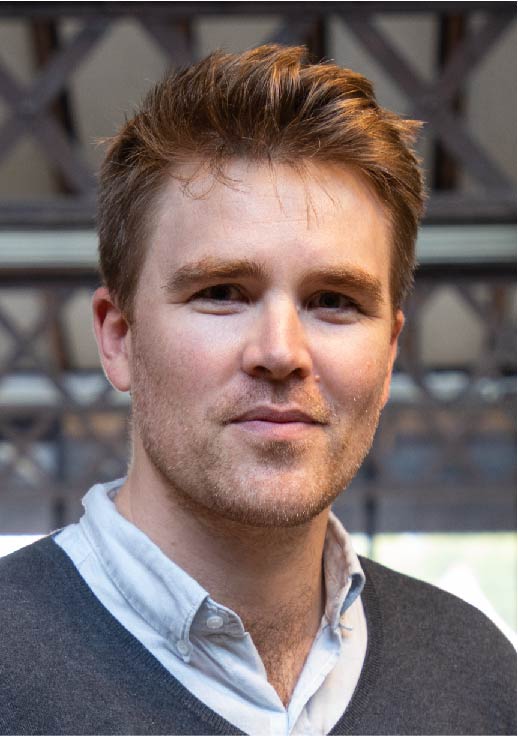
|
Julien Péron
Hospices Civils de Lyon Cancer Institute - Lyon 1 University - RESHAPE Laboratory Julien Péron, MD-PhD, is a medical oncologist at the Cancer Institute of the Lyon University Hospital, Professor of Medicine at the University Claude Bernard in Lyon, researcher in public health at the RESHAPE laboratory and voting member of the “Commission de la Transparence”, French Health Technology Assessment (HTA) medico-scientific commission of the HAS - Haute Autorité de Santé (French Health Authority) since for 7 years As a clinician, he treats patients with breast cancer, gynecological cancer and rare peritoneal cancer. His research work focuses on rare peritoneal cancer, breast cancer, cancer prevention, biostatistics of clinical trials and public health. Julien is the co-founder of Prevenear, a company specialized in the design and development of software dedicated to the promotion of prevention and screening activity for the use of health professionals and their patients. |
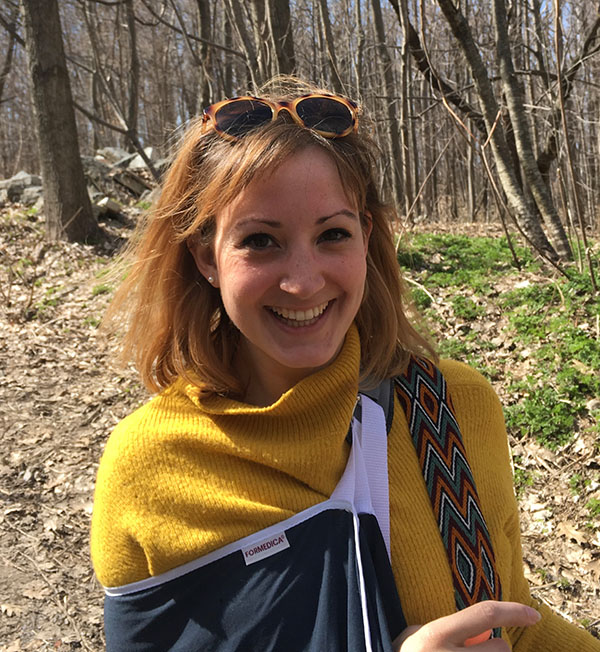
|
Juliette Froger-Lefebvre
GEMASS (CNRS-Sorbonne Université) Juliette Froger-Lefebvre is a post-doctoral researcher in the sociology of health at GEMASS (CNRS-Sorbonne University), a member of Siric Curamus and associated with Cermes3. Following a political science thesis on the mobilization of people suffering from eating disorders, she is now working on the healthcare of cancer patients and their involvement in associations. In her research, she explores how health inequalities are being transformed and made more complex by the development of genomic medicine in oncology. |
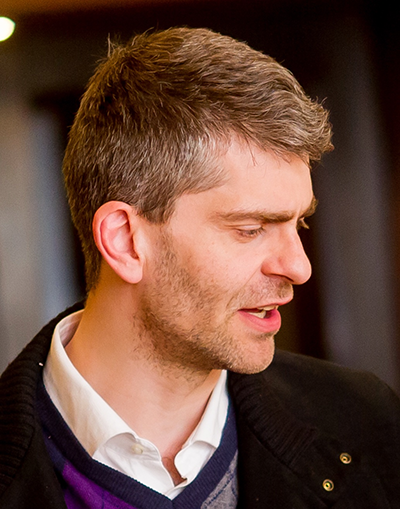
|
Mauro Turrini
Institute of Public Goods and Policies (IPP) of the Spanish National Research Council (CSIC) in Madrid Sociologist of science and medicine at the Institute of Public Goods and Policies (IPP) of the Spanish National Research Council (CSIC) in Madrid, and associated researcher at CERMES3 in Paris, Mauro Turrini explore the cultures, politics and epistemologies of biomedical innovations, by combining and experiment with different, and basically qualitative, methods. Mauro Turrini did fieldworks in the domains of genetics, diagnostic, contraception and reproductive medicine. His current research interests include algorithmic medicine and the new generation of genomic screening, especially in assisted reproduction. |

|
Michel Dubois
GEMASS (UMR 8598), UMR CNRS Sorbonne Université Michel Dubois is a sociologist of science and senior research fellow at the CNRS. He is director of the GEMASS laboratory (Groupe d'Etude des Méthodes de l'Analyse Sociologique de la Sorbonne), a CNRS and Sorbonne University mix research unit. He is also co-director of the Revue française de sociologie (Presses de SciencesPo). He is currently involved in national and international projects on the public image of science, research ethics and scientific integrity. |
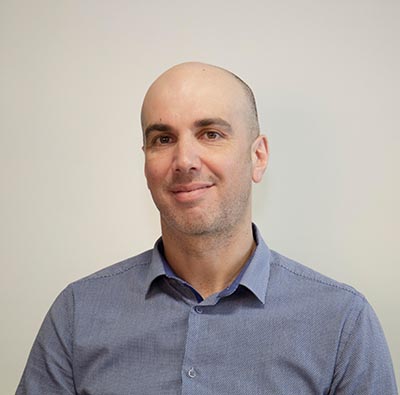
|
Salvatore Vaccarella
International Agency for Research on Cancer, Cancer Inequalities Team Salvatore Vaccarella focus his research on cancer epidemiology, with a strong interest on describing, understanding and characterizing social and gender inequalities in cancer within the wider context of the global cancer transitions, patterns and trends of cancer. He also considers inefficiencies and potential harms in the provision of healthcare services. https://cancer-inequalities.iarc.who.int/ |
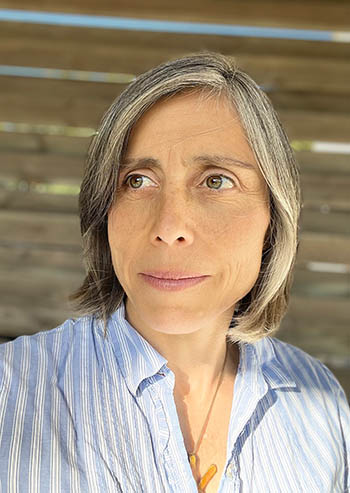
|
Sandrine De Montgolfier
SESSTIM (Health economics and social sciences & medical information processing, IRD, INSERM, Aix Marseille University). Sandrine de Montgolfier is a researcher in medical ethics and sociology of health. Currently holder since November 2021 of the research chair in human and social sciences: Democracy in health and engagement of person concerned by cancer (DemoCan) funded by INCa, Aix Marseille University and the Paoli-Calmette Institute. This chair is hosted in SESSTIM (Sciences économiques et sociales de la santé & traitement de l'information médicale, IRD, INSERM). Her work is based on empirical ethics studies, using human and social science methods. She is particularly interested in the ethical issues of information and consent in various contexts, such as genomics in healthcare and research, cancer screening, and the various pivotal steps of cancer care pathway. She is experimenting different methodologies for involving patients and caregivers in participatory research projects. She is interested in the ethical, socio-historical and political issues involved in implementing healthcare democracy in the field of cancer care and research. |
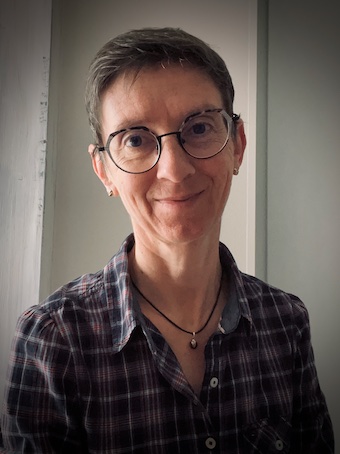
|
Sandrine Knobé
Laboratoire Sport et sciences sociales (UR1342 ; E3S) Université de Strasbourg Sandrine Knobé is a sociologist, research engineer at the Laboratory of Sport and Social Sciences (UR1342; E3S) of the University of Strasbourg. Her work aims to understand the social rationale behind individuals' participation in health promotion programmes through physical activity. Together with William Gasparini, she has recently edited a book that provides an up-to-date overview of the social and scientific issues surrounding health and sport in France and Europe (Gasparini W., Knobé S., Le sport-santé : de l'action publique aux acteurs sociaux, PUS, Strasbourg, 2021). She is in charge of a seminar entitled "Cancers, corps et sciences sociales. L'activité physique comme révélateur de dynamiques plurielles" in collaboration with Claire Perrin (Lyon 1). https://e3s.unistra.fr/equipe/composition/knobe-sandrine |

|
Solenne Carof
GEMASS (UMR 8598), CNRS Sorbonne Université Solenne Carof completed a PhD in sociology at EHESS under the supervision of Claude Fischler, in which she analyzed the stigmatization experienced by overweight and obese people in France, Germany and England, as well as their daily eating and weight practices. For the past few years, she has been working on oncopediatrics, focusing both on transformations in the care pathways of children with cancer, and on transformations in professional practices in a context of reconfiguration of medicine in the face of scientific progress (arrival of genomics, development of new treatments, etc.). |

|
Sophie Day
School of Public Health, Imperial College London Goldsmiths, University of London Sophie Day has a BA from Cambridge, UK, an MA from Stanford University, California, and a PhD from the London School of Economic and Political Sciences, UK, in anthropology. She has recently finished a collaboration with Celia Lury and Helen Ward on personalisation in healthcare, digital culture and data science, a medical humanities project called ‘People Like You’ (Wellcome Trust, 2018-2022). |
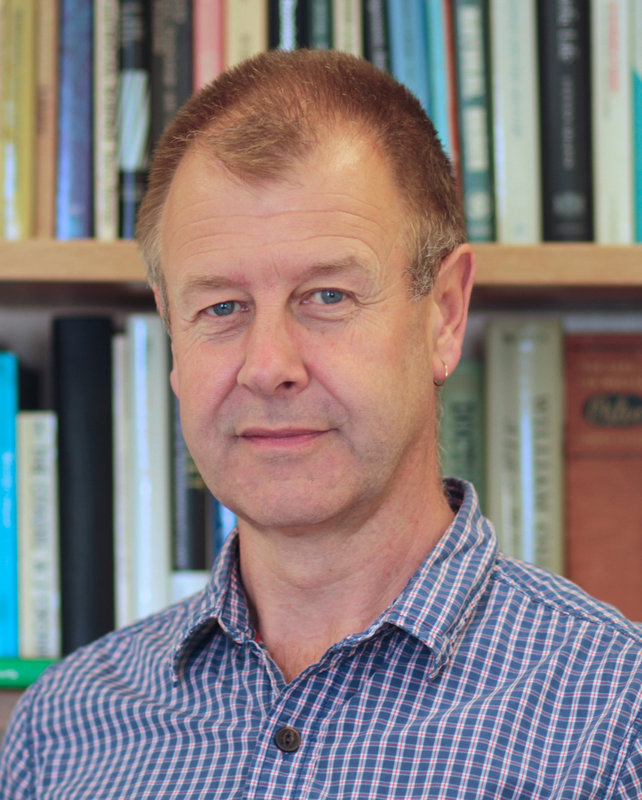
|
Steve Sturdy
University of Edinburgh Steve Sturdy is Professor of the Sociology of Medical Knowledge at the University of. Originally trained in the natural sciences, he moved into science and technology studies with a PhD at Edinburgh’s renowned Science Studies Unit. After seven years’ postdoctoral research and teaching at the University of Manchester, he returned to Edinburgh as lecturer in the history of medicine, and has remained there ever since. His research examines the relationship between medical science, practice and policy, mostly from a historical perspective. Most recently, he has been investigating the development of biomedicine from the mid-twentieth century to the present, with a particular focus on medical genetics and genomics. |
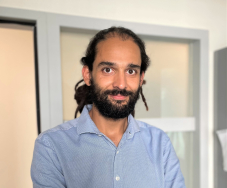
|
Sylvain Besle
Chercheur en sociologie, Université Claude Bernard Lyon 1, Centre de Recherche en Cancérologie de Lyon (UMR Inserm 1052 - CNRS 5286 - UCBL – CLB), Département de sciences humaines et sociales du Centre Léon Bérard I'm a sociologist by training, working on the process of innovation in oncology at the intersection of medical sociology and sociology of science. I'm currently holding a research chair, funded by the French Cancer Institute (INCa), at the Lyon 1 University and the Cancer Research Centre of Lyon: "Social challenges of personalised medicine and innovation in oncology". My research interests are mainly focused on the production of genomic medicine, the organisation of clinical trials and the transformation of biomedical knowledge and health care inequalities related to advanced cancer patients (both adult and paediatric). |